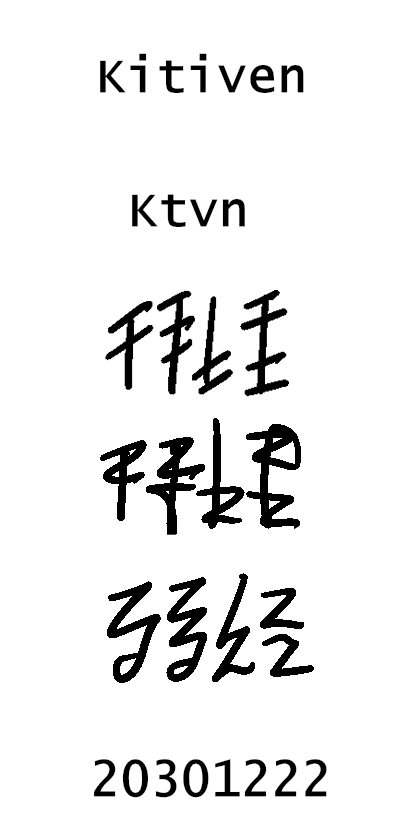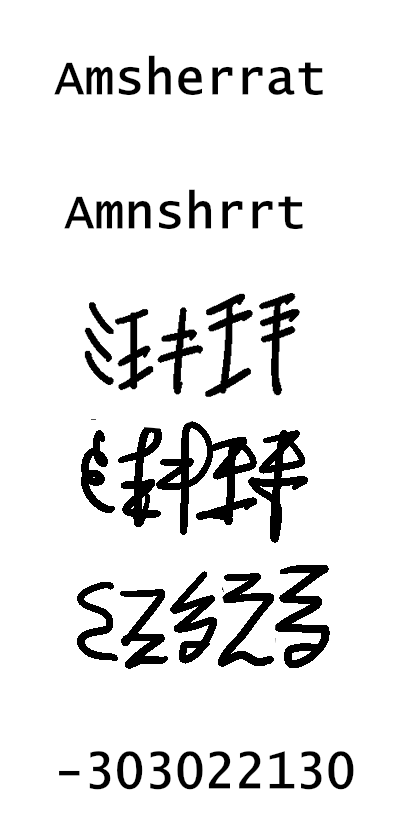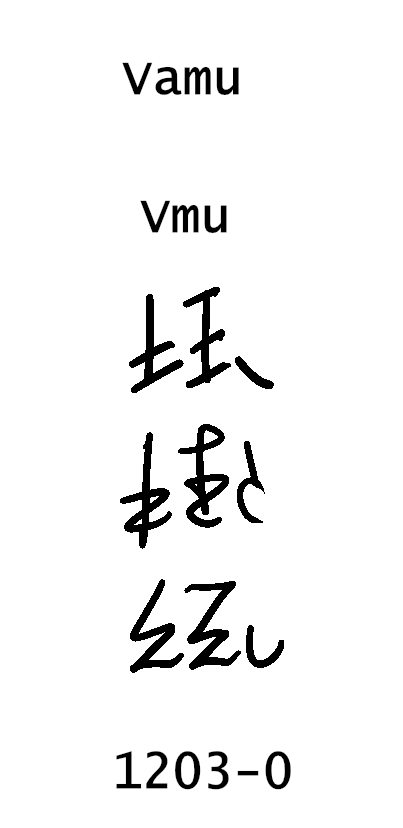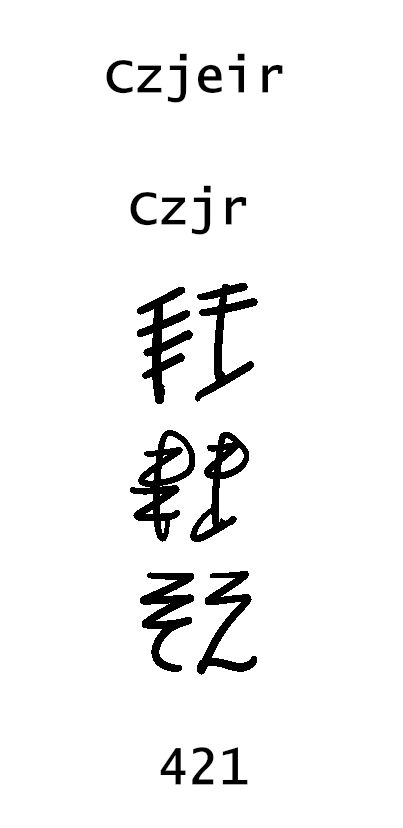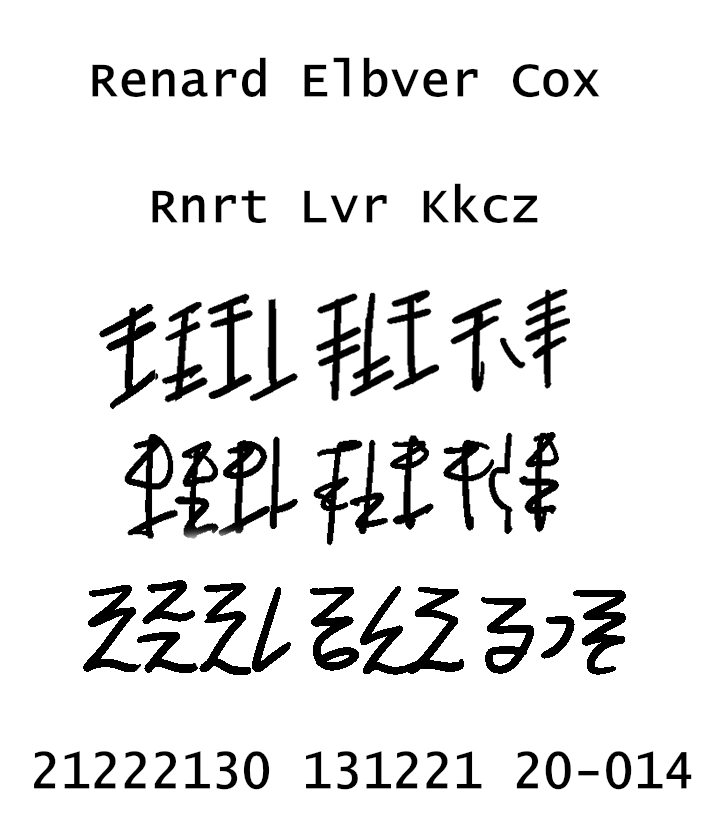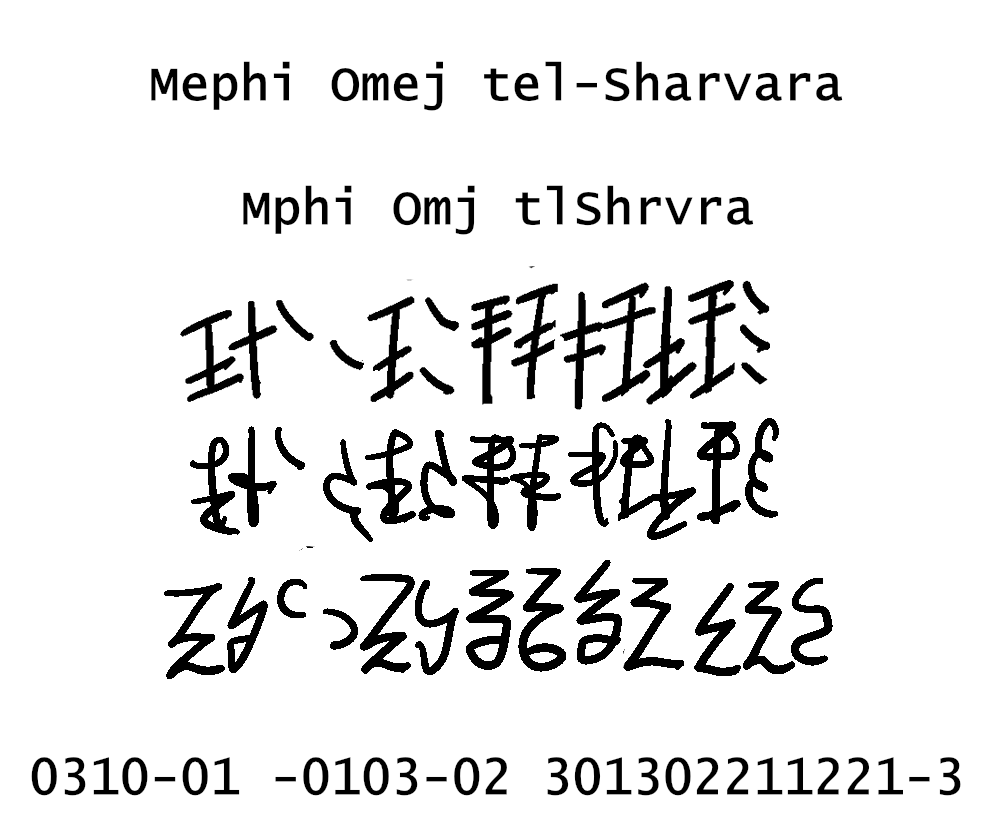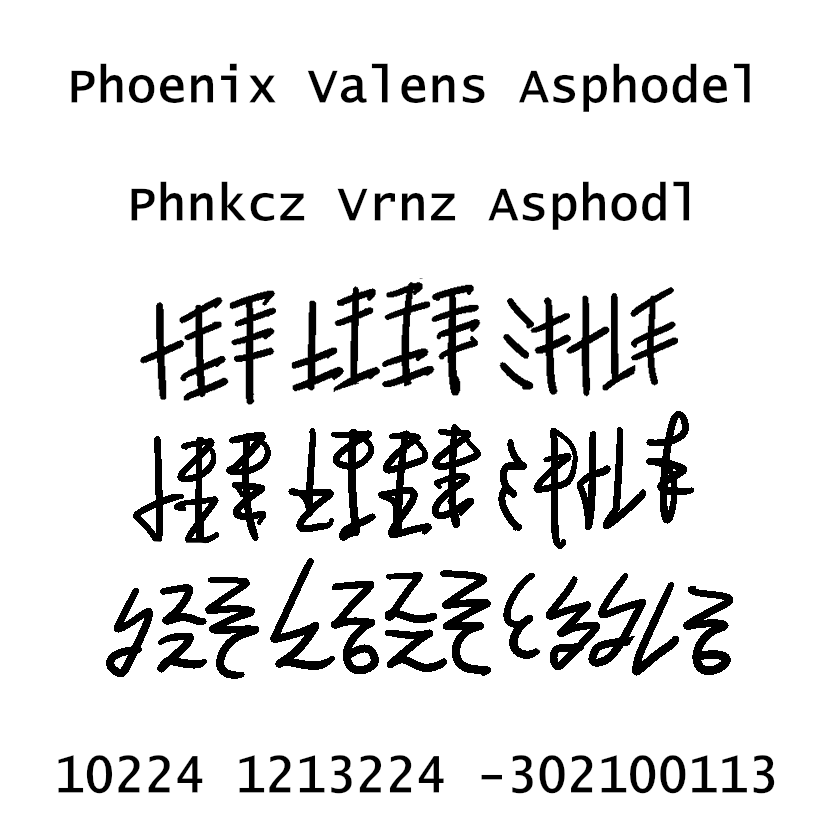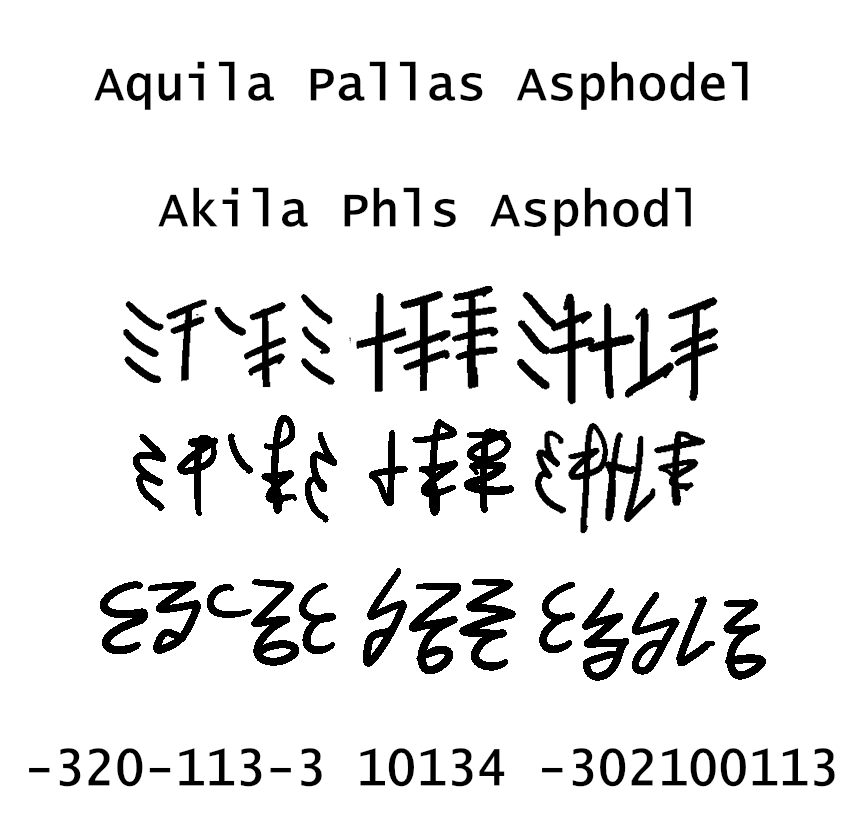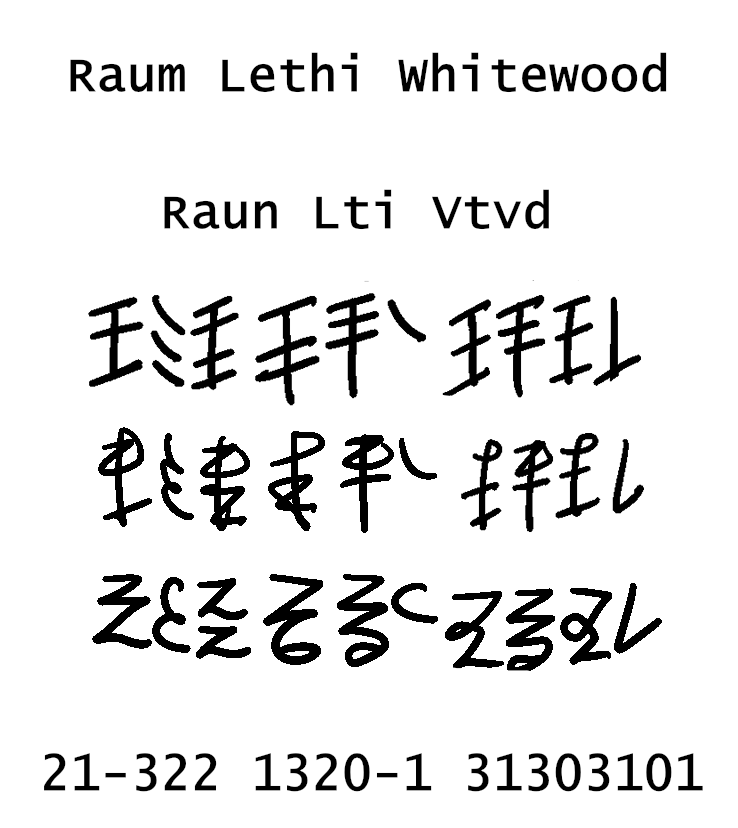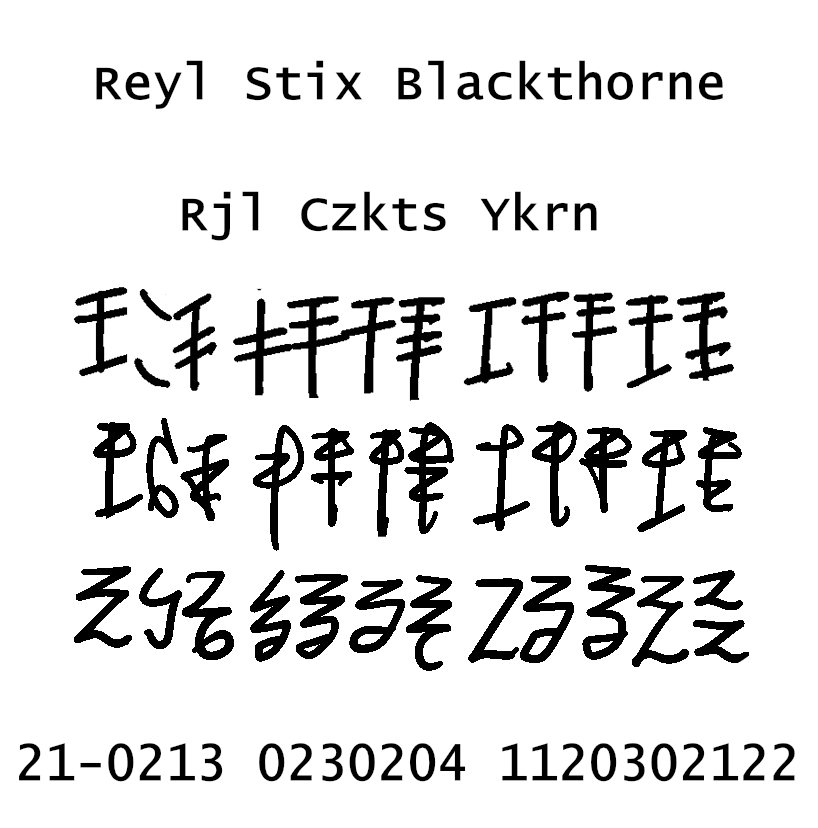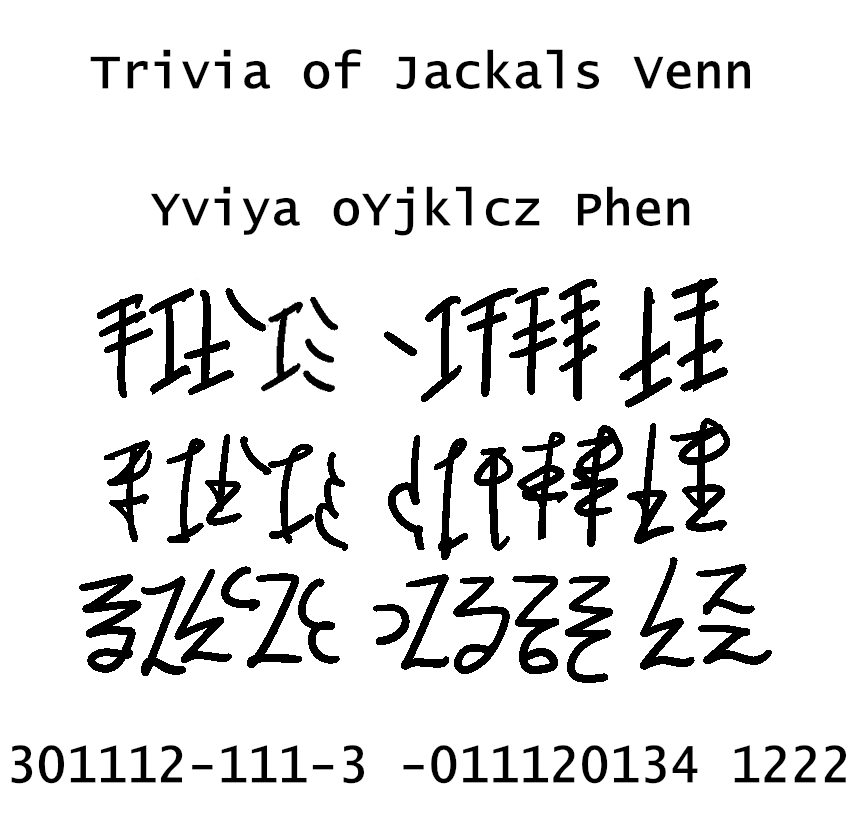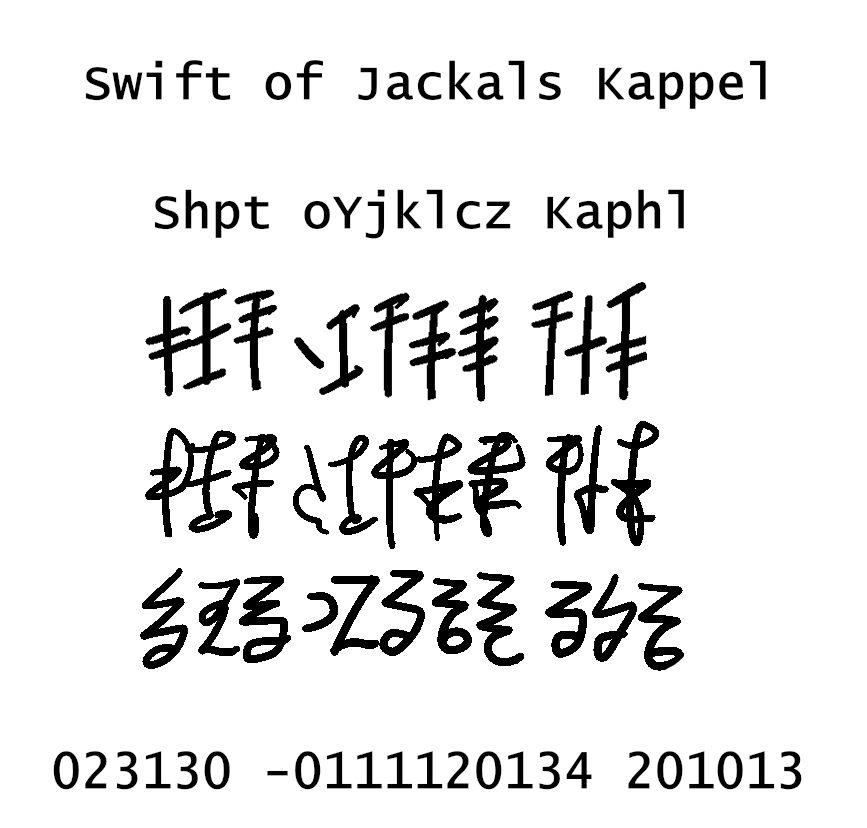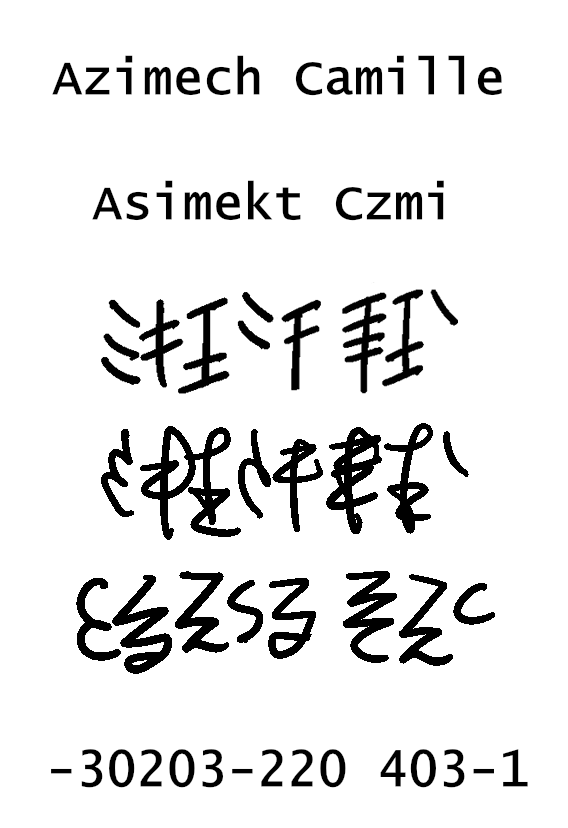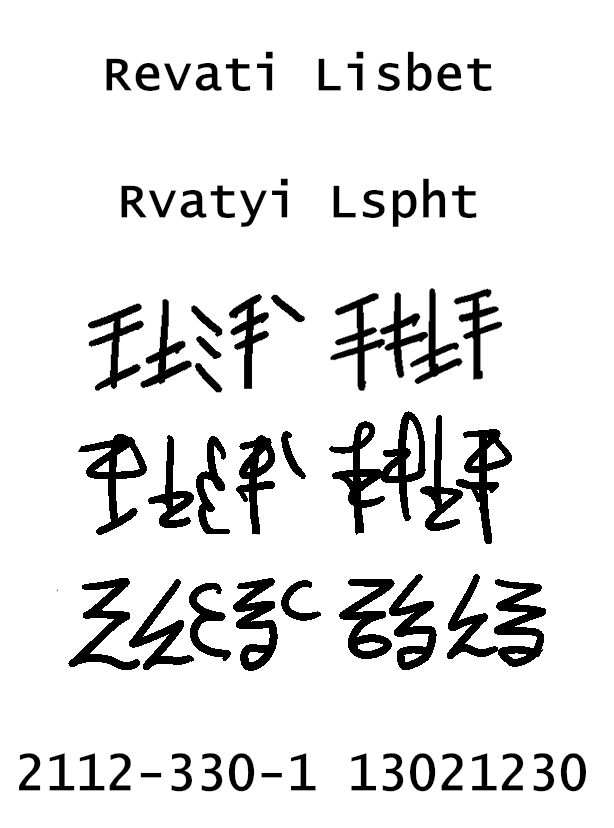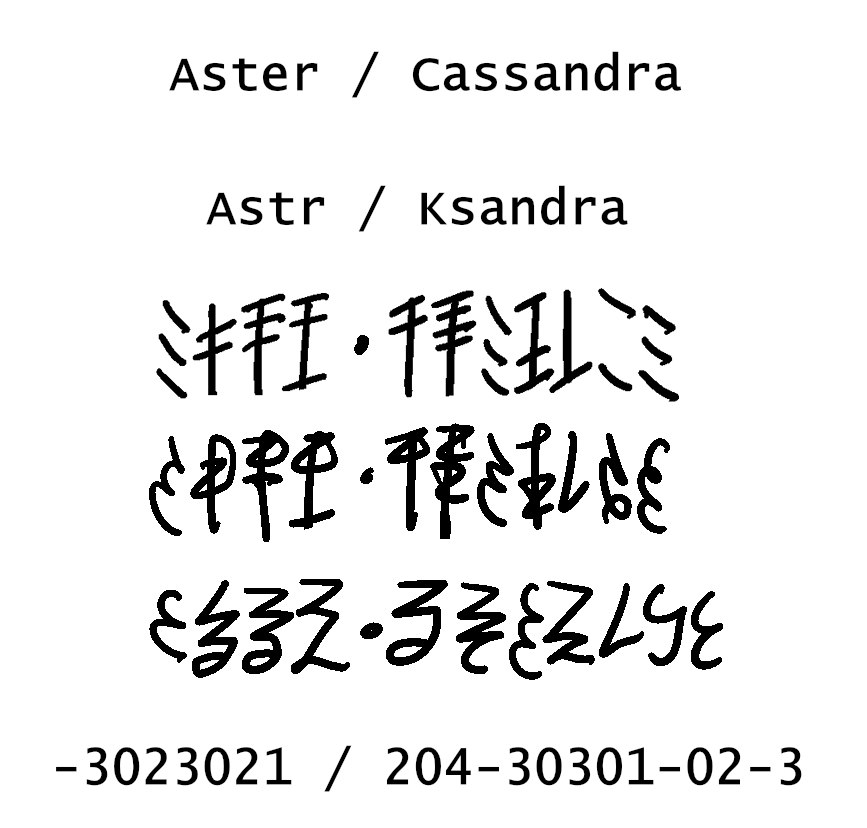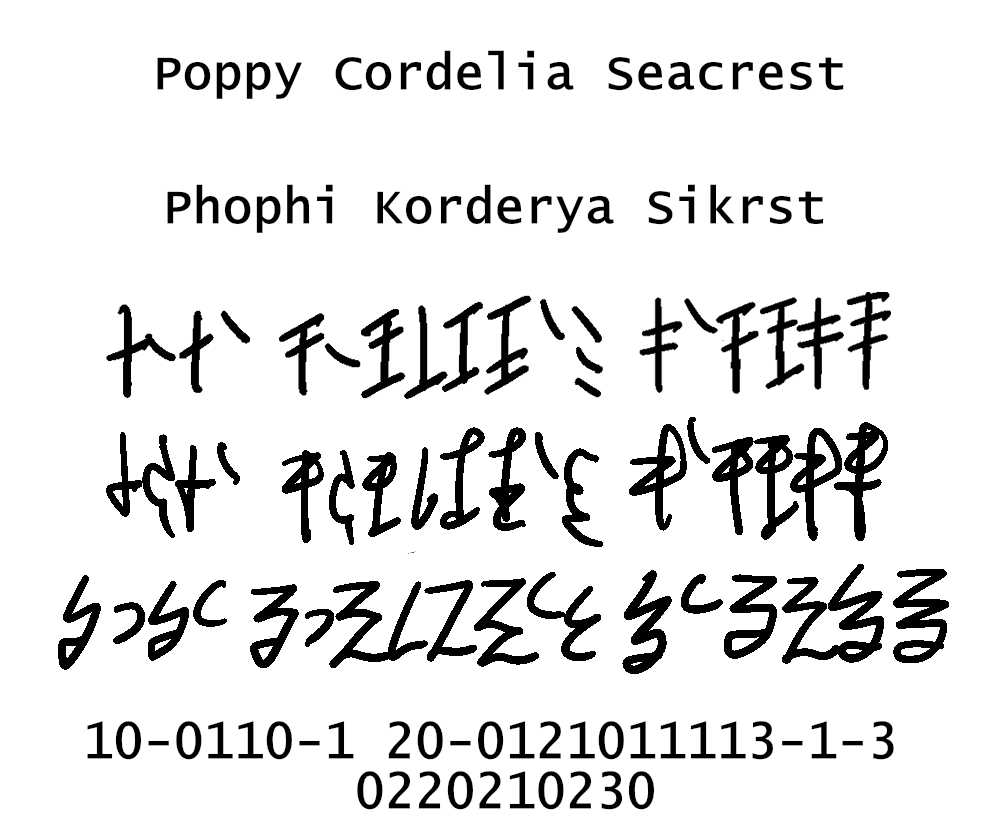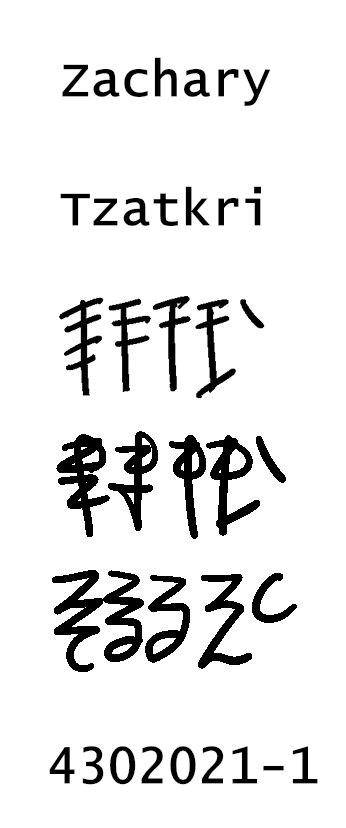Classical Kitt
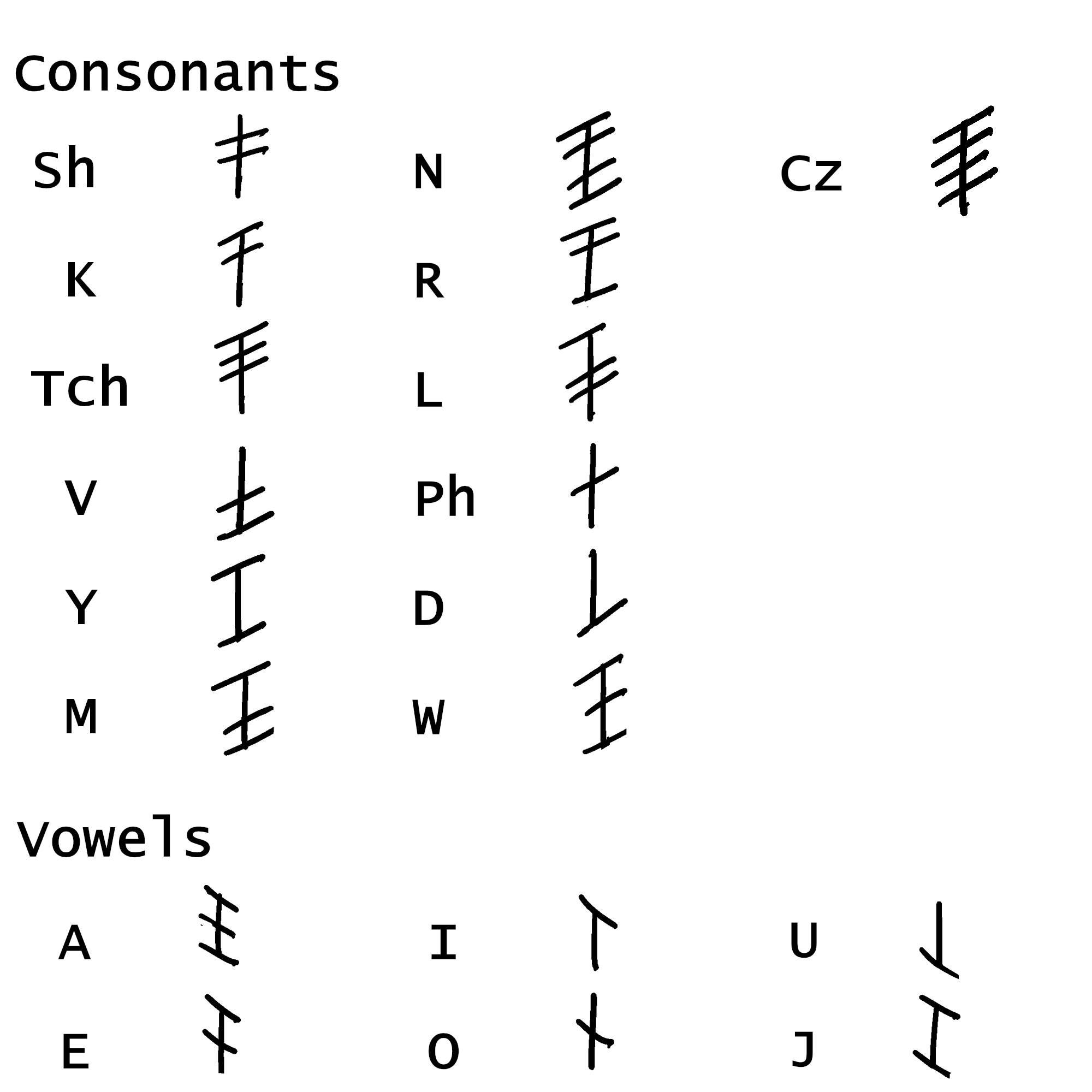
Classical Kitt is written by pressing small reeds into wet blocks of clay. Consequentially, the language looks very formulaic: each letter has a vertical 'stem', and up to five 'leaves' spaced evenly at designated points. Leaves with an upwards slant are consonants, and those with a downwards slant are vowels. Stems are often omitted from vowels. Advanced scholars omit all stems.
Kitt is an abjad, so vowels are almost always omitted. They are typically inferred by the progression of consonants in a word; that is, whatever 'fits best' is likely right. Vowels are only included in cases where the 'fit vowel' is not obvious to a Kitt speaker.
There is no letter for 'h', but the sound can be appended onto any consonant. The Kitt 'j' is a vowel, and is pronounced like a soft 'y'. The language, overall, is flowy but quite abrasive.
Classical Kitt is still used in the modern day, especially in religious, legal, or mercantile documents, and has an air of formality to it. Legal names are also written exclusively in Classical Kitt.
Modern Kitt
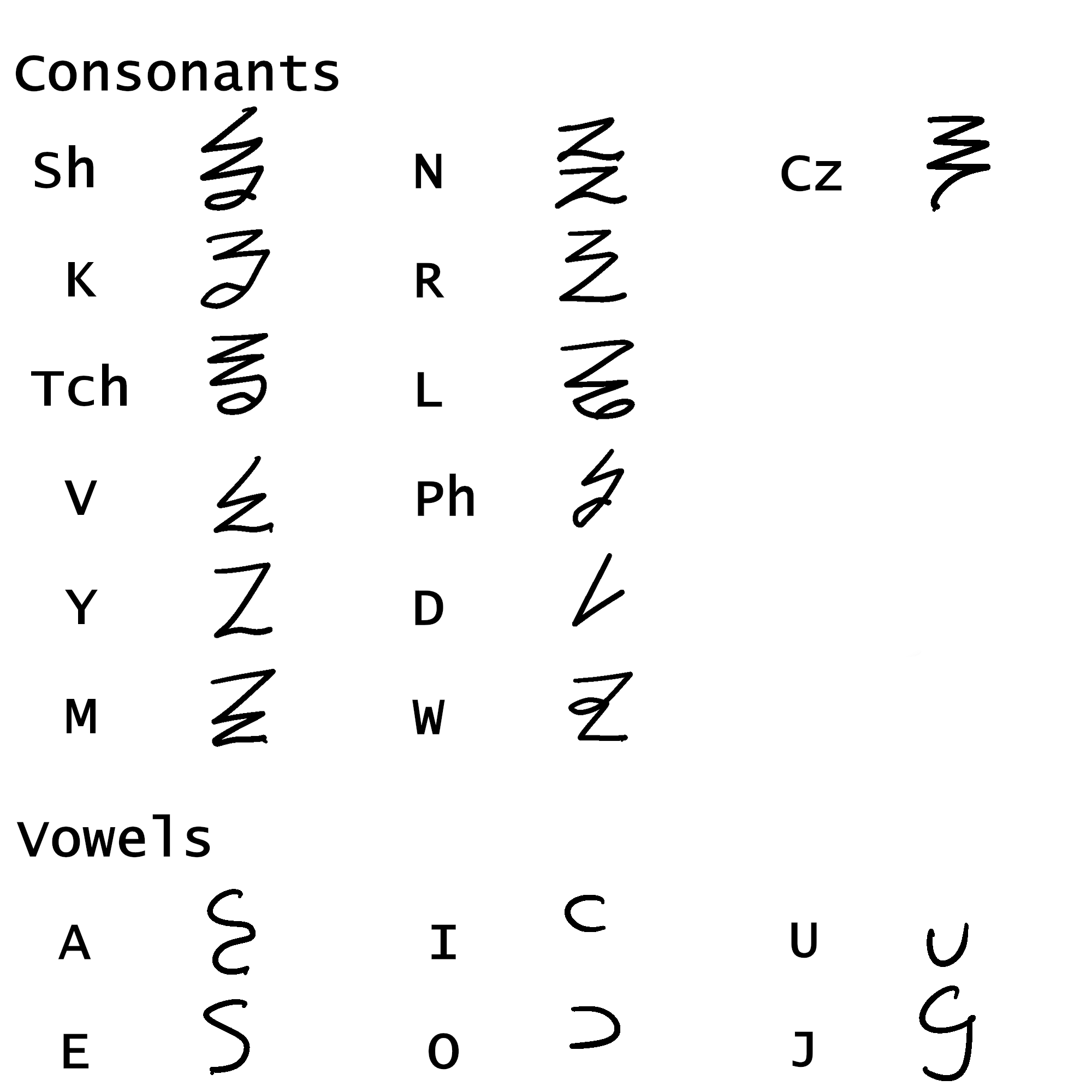
Modern Kitt developed in the early 400s, with the Kitt development of paper, pens, and ink. As handwriting became prominent, scholars sought easier wrist motions for dealing with large volumes of text. While most diverted to cursive, one scholar developed a variant on the Kitt alphabet that became prolific in casual writing. It is used and taught across the continent, being associated with fictional stories or poetic speech. All dialogue or quotations in written Kitt are printed in this alphabet, as it is thought to represent 'the speaker's voice'. It modern days, this is the default script of Kitt speakers.
Numeric Kitt
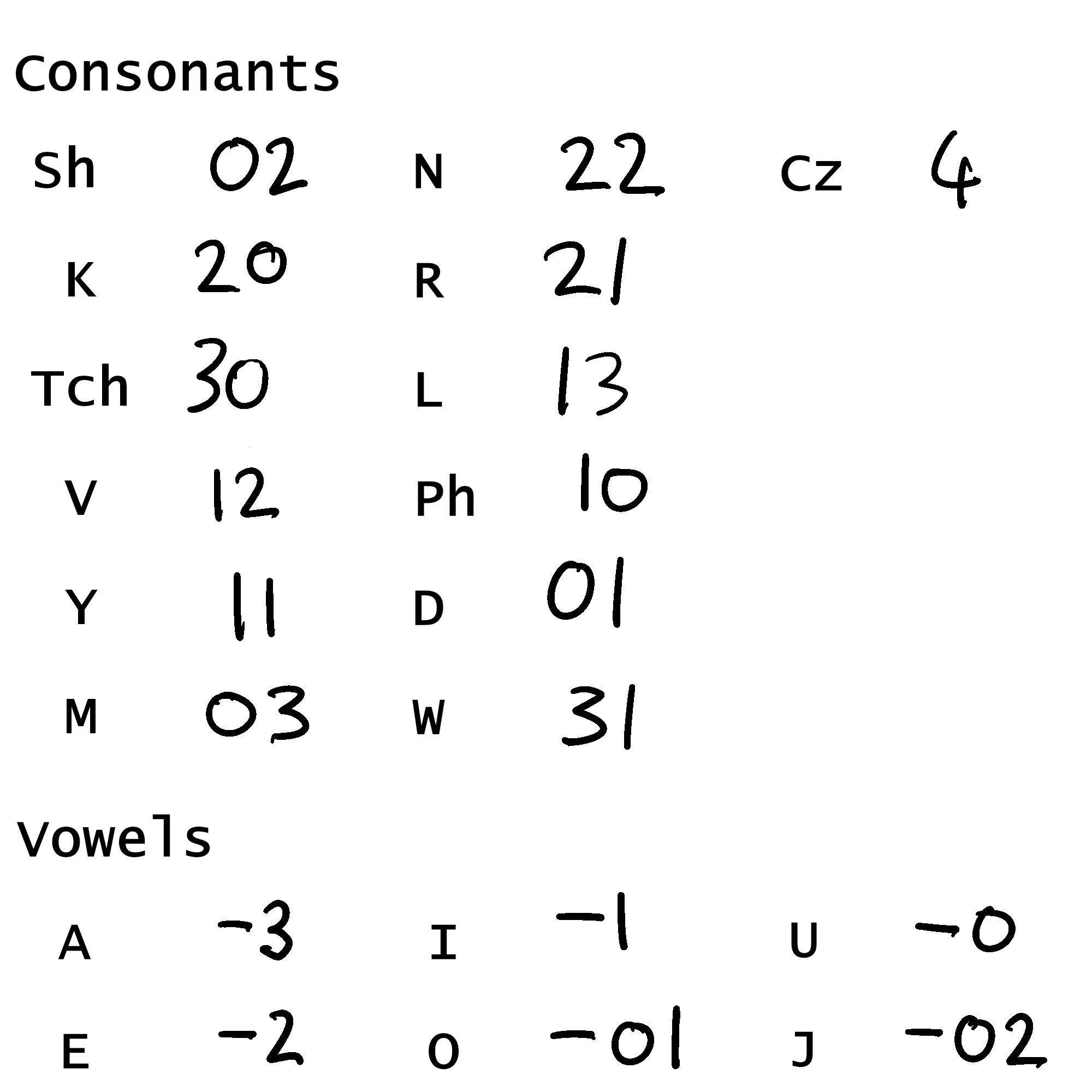
Numeric Kitt is a recent invention of the early 900s, coinciding with the use of the internet. As most early computers or keyboards use Asphodelean script, and Asphodelean is derived from Kierparle, arabic numerals were present on the first Kitt keyboards. The juxtaposition of Asphodel's phonetic focus against Kitt's mathematical formula led to an odd development: rather than by phonics, Kitt speakers would write using a procession of numerals to designate the 'leaves' of a letter. The practice began from necessity, but developed into a meme as proper Kitt keyboards were developed.
Numeric Kitt is extremely informal, and certain numbers have become shorthand for certain—usually very sacred or taboo—words. It is almost never seen outside the internet, and gives a vibe of casual youthfulness, excitement, or pig latin.
Cursive
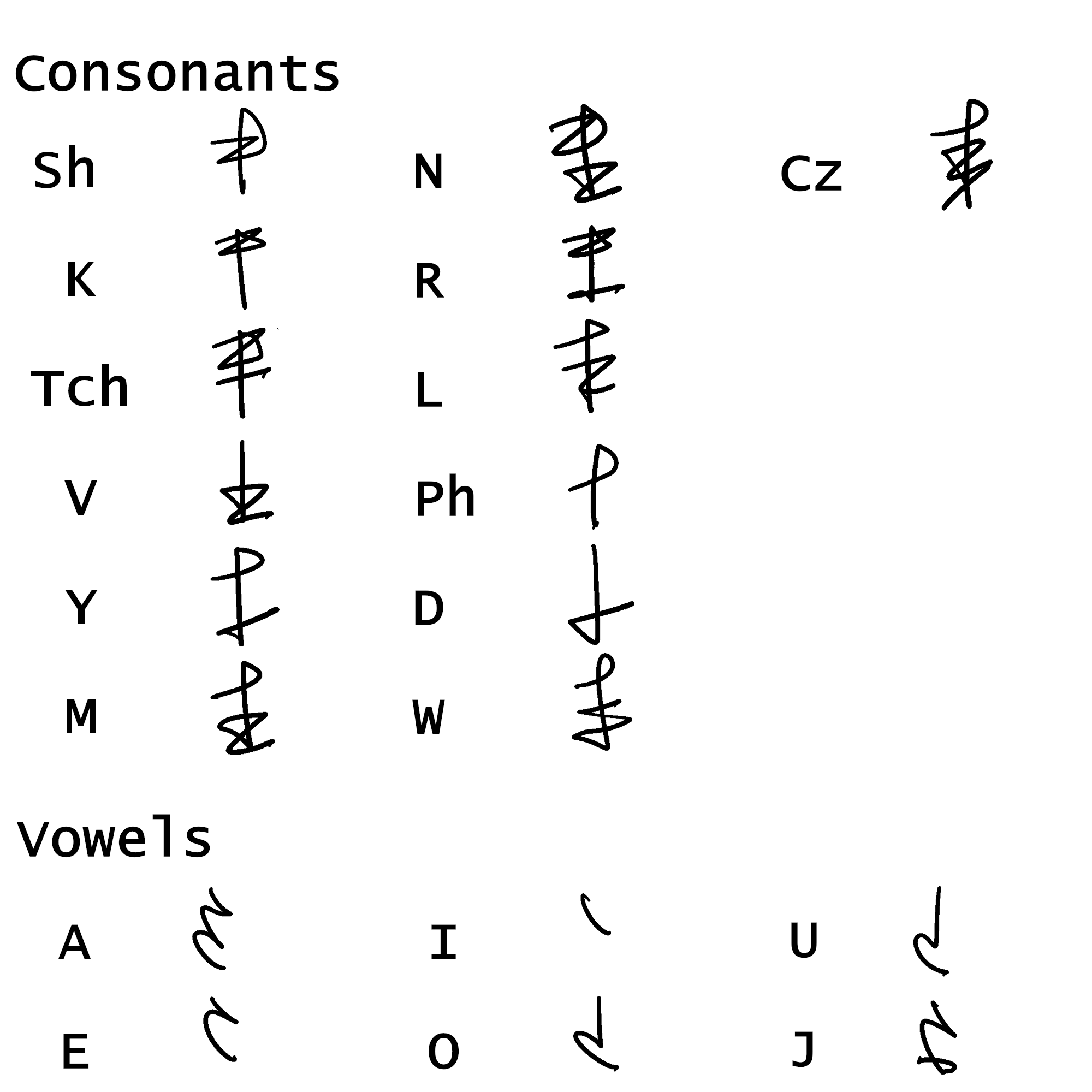
Not an alphabet in itself, Cursive Kitt is simply the modern form of Classical Kitt, written using a brush or a pen. Very formal writing will still clearly print each leaf individually, but most writing of classical Kitt in the modern day uses the cursive form, as it's simply easier to write. Especially with the rise of the internet and subsequent resurgence of properly written Classical Kitt, it is considered artistic, dignified, and intelligent to write and understand cursive.
Notable Speakers
Mephi tel-Sharvara: A Kitt national from the 500s, long after the language was fully established across the continent, Mephi's native language is Kitt. Being a southerner from the countryside, he has a slight, but noticable country accent that is nowadays completely unplacable.
Taught to clearly print in Classical Kitt in school, he later became fluent in cursive in university. His era is slightly before Modern Kitt came into prominence, so he still diverts to cursive when writing Kitt and neglects most conventions that involve Modern Kitt. His writing gives the aura of someone very distinguished, old, and wise because of this. He is aware of this, and secretly likes it.
Mephi also uses the internet, and uses modern conventions appropriately on the internet. He is a prolific Numeric Kitt user online. Though still the language closest to his heart, he more often defaults to Miull nowadays, and considers Miull his 'native tongue'.
Swift Kappel: A polyglot in most all world languages, Swift was taught Kitt alongside his home language of Miull. Being not too distant from his era of Miull, he took to Kitt easily and was sparked to a love of translations firstly through translating Kitt as a child. His technical fluency is immense, and he would have called Kitt one of his three native tongues (alongside Miull and Kierparle) were the culture not so alien to him. He is from the 700s, and writes predominantly in Modern Kitt with well-placed Classical flourishes.
Trivia Venn: A side-effect of knowing Swift, and travelling so much, Trivia picked up a serviceable level of Kitt. She is not an advanced speaker, but can easily get by, and writes almost exclusively in Modern Kitt. Startlingly, she has almost no accent.
Azimech Camille: Although situated in Kitiven, Camille typically speaks by blending words and grammatical forms from various languages together into one sentence, with a basis of Kierparle. The underlying meaning of what he is communicating will transfer regardless, due to his memetics. The specific languages he uses introduce a certain 'tang', or flavour to the concept. He typically diverts into Kitt only while centralizing on extremely Kitt ideas, parodying clergymen, or telling jokes with very Kitt punchlines. He breaks all conventions while writing but somehow everything works.
Aquila Asphodel: Formally trained in the court, Aquila is a fluent if somewhat formulaic speaker of Kitt. His speech comes across as highly diplomatic and uncreative, being strictly adherent to the Church's scholarly conventions. That being said, he does sound intelligent. Although from the 700s, he writes in plainform Classical Kitt. Strenuously printing all those little lines conveys a particularly unique sort of dignity. He has a very refined Asphodelean accent that he has purposefully cultivated.
Raum Whitewood: A language that he learned (very quickly) as an Archon, Raum is a fluent speaker, reader, and writer of Kitt. By abusing his Archon powers, he learned the language's rules overnight and subsequently became fluent by his own aptitude, through which he already knew Asphodelean. He purposefully speaks with a vaguely Ordish, vaguely Asphodelean accent, but can adopt or drop any accent. His writing is fluid and changes form frequently, depending on what persona he is playing or impression he wants to make. Most commonly, though, his diction is casual when talking to people and cursive in private documents. He adores the idea of Numeric Kitt but dislikes its somewhat vulgar usage.
Renard Cox: A remedial speaker of Kitt who has learned the language more from raw exposure than any considered study. Renard comprehends spoken Kitt easily, but struggles to read, write, or speak it beyond a beginner level. He is not aware of how bad he is at Kitt, and overestimates his capacities. When wielded by a Kitt national, he relies heavily on their empathic link, or uses Kierparle. He writes exclusively in Classical simply because he doesn't know how to properly use the other forms. His accent, when not smoothed by his wielder, is horrific.
Aster: Aster learned Kitt over various timeloops to an extremely proficient level. She is fluent in all forms of the language, but is biased towards Modern Kitt. She feels somewhat insecure about writing Classical or Cursive Kitt, though she will use them in certain contexts, as she sees those forms of the language as being too dignified for her. She has a harsh but not unintelligible Ordish accent that she can't be bothered to drop, as she wants to preserve it for Cassandra. Offensively, she sometimes uses Numeric Kitt in everyday contexts, and knows how to make formal forms of the language sound vulgar.
Zachary of Nine Columbines: Raised in Kitiven, Zachary has some remedial knowledge of Kitt due to raw exposure and a handful of lessons. Despite his language difficulties, he can effectively communicate very basic things to meet his needs by relying on a mishmash of single-word Kitt and Kierparle. That said, he prefers Kierparle. When not stilted by aphasia, he has a rather attractive and priestly-sounding Amsherrat lilt. He cannot write or read at all.
Various Words
